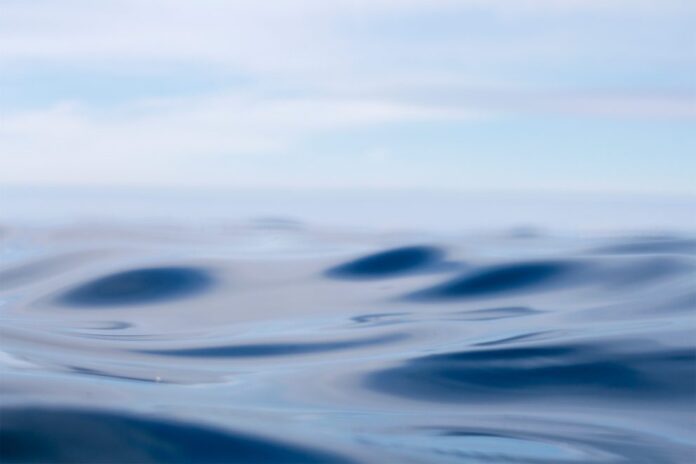The state of the ocean is still under significant threat, but more attention is being paid than ever.
This is the ocean decade as declared by the UN and that gives me hope that we’re really going to focus on tackling some of the challenges. There’s been this declaration of 30 by 30, this idea of protecting 30% of land and water by 2030 as a means to both stabilise the climate and protect biodiversity which we are losing at a great rate. To me that is a sign of these issues being taken seriously.
Surfrider Foundation’s Achievements Through 2021
Surfrider’s number one impact metric as an organisation is a “coastal victory”. This means that an official decision was made that will have a tangible benefit to our ocean, waves, beaches, access, or all of the above. We measure these every year and we had 83 coastal victories in 2021. A victory can be local, state or federal, and it means that an ordinance was passed, a law was passed, or a lawsuit was won, and each one of those things resulted in some benefit. It could be that a local town passed an ordinance to reduce single use plastics, or it could mean that we won a lawsuit at the federal level that’s going to impact the whole country. 41 of those were laws and policies that will reduce plastic pollution. One of the things that’s significant is that we have been shifting from winning and passing a lot of laws at a local level to passing them at a state level. One of our goals is to scale up our impact from a local level to the state level and ultimately to the federal level. You affect tens of thousands of people at a local level, yet if you pass a law in California you effect tens of millions, and if you pass it at a federal level then you impact hundreds of millions of people. The scale of the impact increases dramatically. These are real victories that are making a difference and having an impact.
Surfrider Foundation’s Plans For 2022
We just launched a new strategic plan for 2022. It focuses on three areas that we think are the most important in terms of protecting our ocean, coasts and planet; it’s addressing climate change, plastic pollution (and I think it’s important to note here that plastic is a fossil fuel, so there’s a real climate/plastic connection), and clean water. What we did in the strategic plan, which is new for Surfrider, is we looked at what it would take to actually solve these problems. We’ve passed 300 laws and policies around plastic pollution over the last decade, which is great – we’re chipping away around the edges – so now we’ve set our aspirations on eliminating all single use plastics in consumer goods in the United States by 2035. Now we’re building a map and a plan to make this a reality. We’ve passed over a dozen state laws in the last five or six years, so what do we need to do to get from where we are today to the point that, after it rains in the United States, our ocean and beaches aren’t littered with plastic from the run-off? It’s eliminating it at the source. It’s about production.
The other thing is that we’ve made a significant emphasis on addressing is climate change, and that’s three-fold: one is really working hard to help our states and communities to adapt to sea level rise and the climate change impacts that are coming to our coasts. If we stopped emitting carbon tomorrow then we still have a thousand years of sea level rise that we’ve already baked into the system. That’s happening: three feet to five feet, 1-2 metres in the next 50-100 years. We need to start thinking about what that means to our coastal communities and moving back, getting out of harm’s way, avoiding flooding. There’s a lot of work to be done to adapt to that. The other piece of that is there are a lot of nature-based solutions that can help with that; this idea of blue carbon, the coastal ecosystems that sequester carbon such as wetlands, mangroves, and seagrass meadows that can absorb carbon at five times the rate of rainforests. We can do ourselves a big favour by protecting and restoring all of these coastal ecosystems; by ensuring that the wetlands that we have are protected by planting new wetlands, and by restoring mangroves. That will sequester carbon, buffer our coastal communities from flooding, and provide loads of new habitats. These are the spawning areas for marine life. So it’s a win/win/win. We’re putting a big emphasis on advocating for and getting projects going to restore the health of our coastlines. These are nature-based solutions that will use the system that’s been around for three billion years to balance the climate for the benefit of everyone.
In summary we want to tackle climate change through adaptation and nature based solutions, to eliminate single use plastics in consumer goods in the United States, and to upgrade our water quality systems, both run-off and sewage, so that it’s safe to swim and surf and play in the ocean after it rains – which is a problem here. Our infrastructure has historically been better than the UK, but it’s starting to fail. Fifty years after the clean water act, which was the major federal legislation that cleaned up the waters of the United States, a lot of the major infrastructure such as waste water treatment plants that were put in are no longer keeping up with the time or the changes in climate that are stressing those systems. Those are our three big goals that we launched this year, but it’s going to take us the next ten years to achieve them. We think that we can solve a big part of the plastic pollution crisis, we can ensure that our coastal communities are around for our kids, and that the water’s clean.
My Predictions For The Marine Environment Over The Coming Year
My prediction is that we’re going to continue to see the impacts of climate change in ways that we’re still just starting to understand. Whether that’s the concept of marine heat waves or finding species in places where we don’t expect them. We still know so little about the ocean. My prediction is that we’re going to continue to unearth new impacts that will only make addressing climate change all the more serious and timely.





